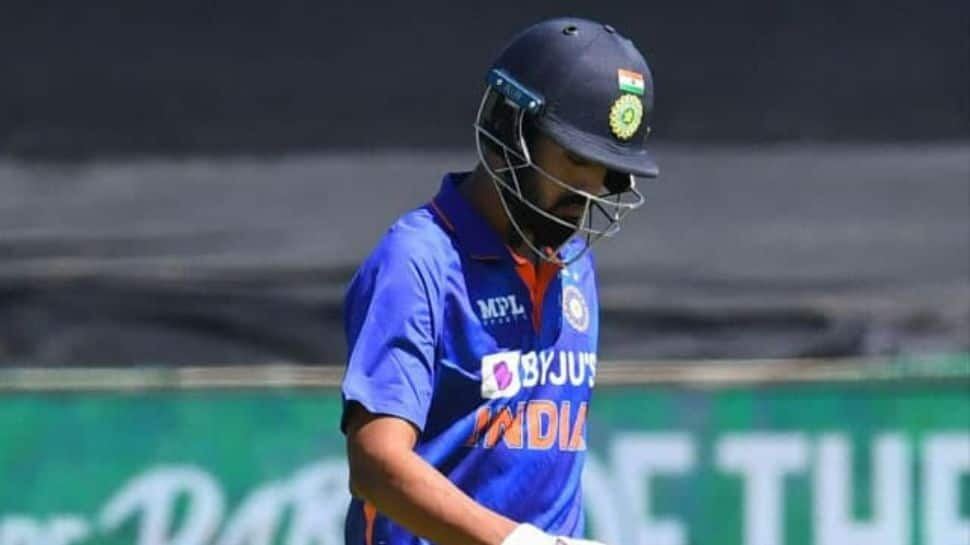 |
|
The cricketing world is abuzz with news of KL Rahul's decision to opt out of the upcoming India vs. England limited-overs series. The star batsman, known for his elegant strokeplay and crucial contributions to the Indian team, has cited physical exhaustion following his participation in the recently concluded Border-Gavaskar Trophy in Australia as the primary reason for his absence. This decision, announced after consultations with the Board of Control for Cricket in India (BCCI) and chief selector Ajit Agarkar, will see Rahul take a much-needed break from the intense schedule. The series against England, comprising five T20s and three ODIs, starting January 22nd in Kolkata, will be a significant test for the Indian team as they prepare for the Champions Trophy, commencing February 19th. The series will see the Indian team play all their matches in Dubai, while the remainder of the tournament is slated for Pakistan. This strategic break underlines the importance of player well-being and responsible management of the demanding cricketing calendar. Rahul's commitment to prioritizing his physical and mental recovery highlights a mature understanding of the long-term benefits for both his career and the team's overall performance. The decision is not solely driven by personal interests; it is a calculated move that acknowledges the importance of peak physical condition to ensure maximum contribution in upcoming major tournaments.
Rahul's position within the Indian team's ODI setup warrants further analysis. While he hasn't been a first-choice selection in the ODI format lately, with the likes of Rishabh Pant and Sanju Samson vying for positions, this break presents an opportunity for other players to step up and cement their places in the team. His performance in the Border-Gavaskar Trophy, although marked by a notable contribution as the third-highest run-scorer for India with 276 runs across 10 innings at an average of 30.66, was not without its challenges. The added responsibility of opening the innings in some matches, owing to Rohit Sharma's paternity leave, further underscores the physical demands placed upon him. Rahul's adaptability and willingness to fill various batting positions are testament to his dedication and commitment. The fact that he batted down the order after Rohit's return highlights his team-oriented approach. Even though India ultimately lost the Test series to Australia 1-3, Rahul played a vital role, and his decision to prioritize his health is a testament to this.
While his absence from the England series is significant, it's crucial to note that Rahul's decision is not a permanent withdrawal from international cricket. He has explicitly indicated his availability for selection in the upcoming Champions Trophy, suggesting that the break is strategically timed to ensure peak physical condition for this major tournament. The BCCI's acceptance of his request underscores the evolving approach to player management, recognizing that consistent high-level performance requires adequate rest and recovery. This understanding contrasts with previous eras where relentless schedules often prioritized participation over player welfare. The statement made by a BCCI source, confirming Rahul's desire for a break while affirming his availability for the Champions Trophy, clarifies the situation and addresses potential speculation. The strategic nature of this decision suggests that the BCCI is prioritizing long-term success over short-term gains. Rahul’s absence from the Vijay Hazare Trophy, specifically his non-participation in the Karnataka team's quarterfinal match, further supports the narrative of his prioritizing his recovery. This decision might also be perceived as a reflection of the holistic approach to player management, where even domestic commitments are adjusted in line with an athlete's overall physical condition.
The implications of this decision extend beyond Rahul's immediate absence. It sets a precedent for future player management within the BCCI. By openly acknowledging the need for rest and prioritizing long-term health, the board implicitly endorses a more sustainable model for player well-being. The success of this approach will undoubtedly be a key factor in the Indian team's performance in the coming years. The decision to allow for rest, rather than forcing players to compete while physically and mentally drained, is a move that could pay dividends in the long term, particularly given the increasingly demanding cricketing calendar. It also sends a message to other cricketing boards, encouraging similar approaches to player welfare. Ultimately, KL Rahul’s decision to prioritize rest over immediate participation exemplifies a responsible and sustainable approach to athletic performance that is likely to set a new standard for other cricketing bodies and players to follow. The strategic decision-making highlights the importance of considering both short-term results and long-term player sustainability within the world of high-stakes professional sports.
Source: EXPLAINED: Why KL Rahul Opts Out From IND vs ENG Series?
